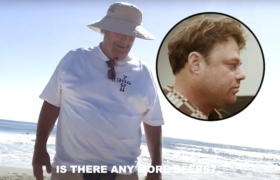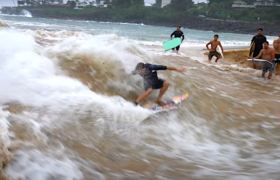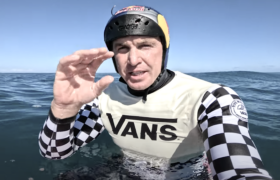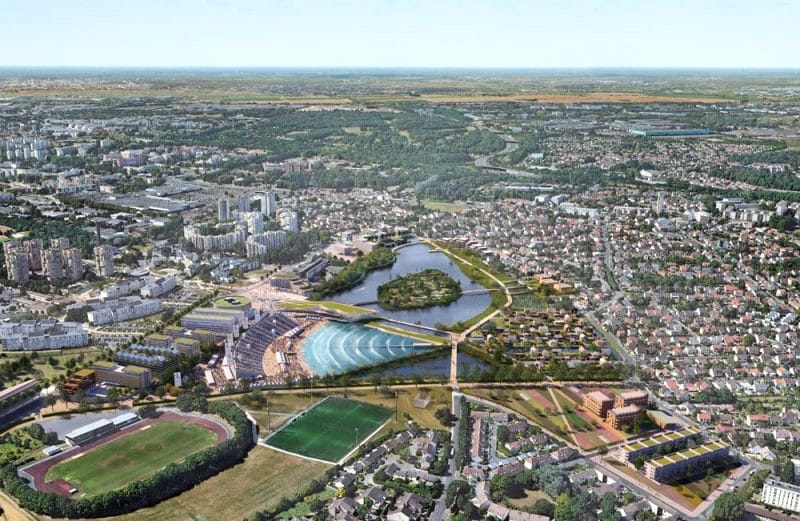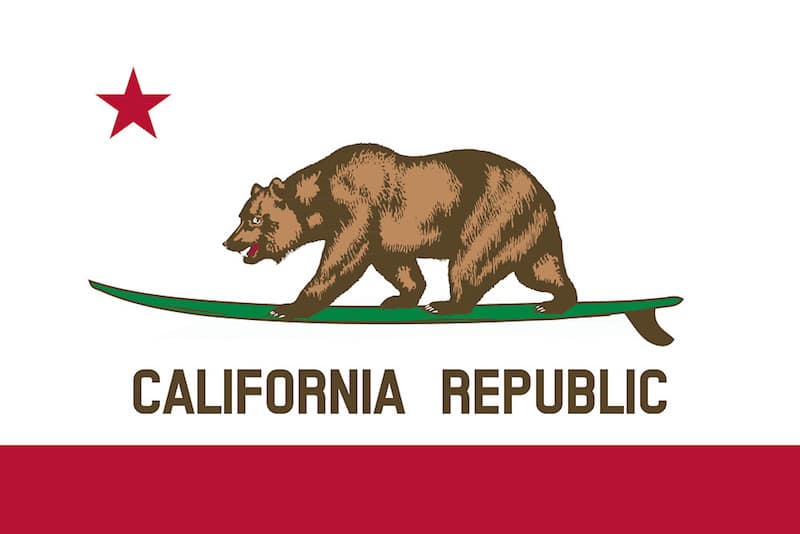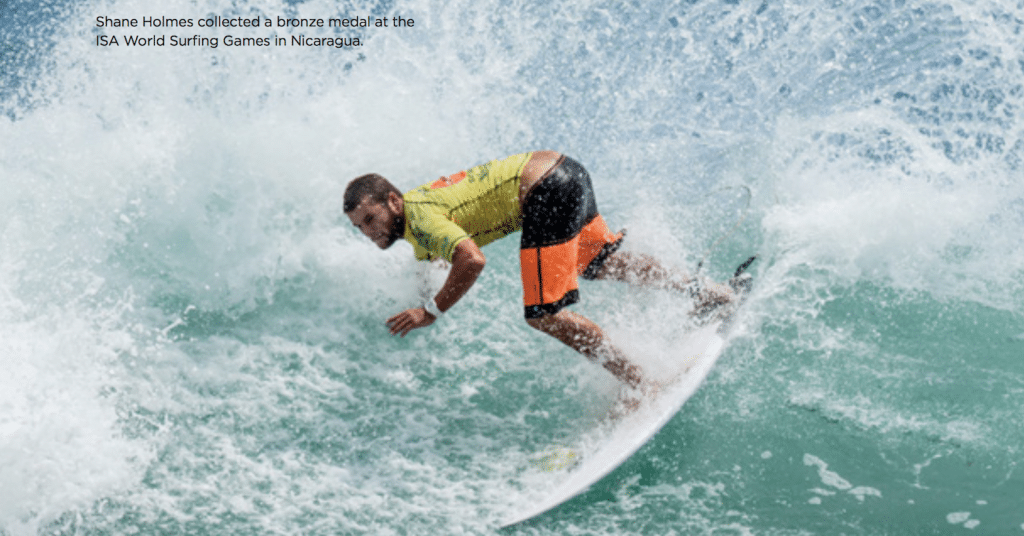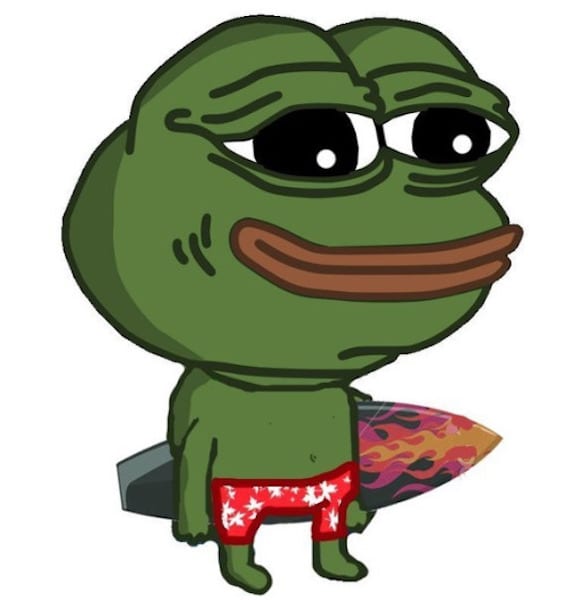"If there’s not a massive change soon, Australian surfing is doomed," says surfer-shaper Maurice Cole.
A few months ago, Surfing Australia announced with much fanfare that it was going to demolish the old high-performance training facility in Casuarina in northern NSW and build a much grander version at a cost of $5.6 million.
The NSW state government threw in three mill, the federal government two and a half, and Surfing Australia a hundred grand.
A beautiful example of governments helping the kids, a, or money squandered on a failing system? I choose…b.
Explain to me this.
More and more money is being tipped into surfing in Australia and yet competitive surfing here is at its lowest ebb. How many surfers have we got coming through the WQS? How many have qualified?
Of eight new surfers on the WCT, five are Brazilians, two are Americans and there’s the single Australian, Wade Carmichael. (Side note: A few years ago, I spent a bit of time in Hawaii with Wade. He’s quiet but fuck can he surf. When I got back to Australia I showed Quiksilver footage of Wade. Said they could pick him up for fifty grand. They wanted to back Matt Banting instead. Good call that one.)
And that piece of shit ISA world titles in May? Australia finished twelfth, only a few hundred points clear of Germany. Round four was the best an Australian did in the blue-ribbon Open Men’s. A colossal failure.
At the world junior titles in Kiama, Australia didn’t get one surfer into the quarter-finals. In one-to-two-foot junk. Indonesians and Japanese finished higher than Australians at our home break. We should have the best one-to-three-foot specialists in the world. I see all these kids doing contests every weekend and we couldn’t crack even the minor finals.
And who won the world juniors? A Hawaiian kid. Finn McGill. In shit surf. A kid who can ride Teahupoo, Backdoor, Pipe, Waimea and Jaws. The complete competitor.
Australian surfing is really the tale of two surfers: Ethan Ewing and Jack Robinson. Is Trevor Robinson, Jack’s dad, a genius? Because Jack is twenty and he can win at big Pipe and match anyone at Teahupoo. He’s ready to go. The problem is, he can’t get out of a fucking heat in the WQS. But that’s easily fixed. Get a good coach. Jack should be on the WCT, easy, until he wants to retire.
But how long will it take Ethan to learn to surf big Pipe, big Backdoor, big Teahupoo? Who’s taking care of the surfers who come through the Surfing Australia system?
It’s a system that’s broken.
It’s not producing anything except salaries for the people at the top. They’re more interested in having shitty contests every weekend in every part of Australia.
But when do kids learn to surf? To really surf?
Meanwhile, the French kids, the Hawaiian kids, they’re out there charging. Killian Guerin just surfed Waimea. He’s fourteen. These kids can all surf top-to-bottom barrels no matter where. By the time they get to the WQS they’re ready to graduate to the WCT.
If there’s not a massive change soon, Australian surfing is doomed. It’s like Australian tennis. In the sixties there wasn’t a country in the world who could touch the Australia. Now, our best players, the prodigies Nick Kyrgios and Bernard Tomic, are spoiled brats. How did they get to that point? Why didn’t they straighten that shit out? What’s Tennis Australia doing?
Jack Robinson’s dad didn’t let him go into the Surfing Australia system. Trevor might be hard to deal with, and maybe he’s only liked by the lunatic fringe like me, but what we’re dealing with is a surfer who has no mediocrity in him, except going into a heat.
Surfing Australia, I feel, is a mediocre bureaucracy that produces mediocrity. We have some of the best free surfers in the world, Ando, Creed, Noa and we have that in bucketloads, but for the competitive kid, all they get prepared for is years and years on the QS.
Look at Jack Freestone. Two-times world junior champ. Came through the Surfing Australia system. For the amount of talent that he’s got, his mediocre results are a failure of the system. He never learned to surf Teahupoo, Pipe or even Fiji. Jack Robinson, meanwhile, had the passion to learn to surf those places.
Right now is the lowest Australian competitive surfing has ever been and the Olympics are coming up. God knows how we’ll go. Normally, I’d say Australia is odds-on for a medal but I fucking doubt it. We don’t have the depth of surfers. But we have all the infrastructure, all the academies, the six-million-dollar high-performance centre, all the bureaucracies.
What do we want to produce? World champions. Australia loves world champions. Nat Young’s still walking around with his hand in the air saying, “World Champ!” No one remembers second. You could have twenty-five seconds in a row and no one would remember. Being a world champion sets you up for life.
We used to be a nation of mongrels. We were that strong, we were that dominant. We’d go to Hawaii and fucking surf and fucking party and fucking headbutt each other, knock each other out and then buy each other a beer. We were raw. We were passionate. But loaded with ability.
And then came Surfing Australia. More money than ever. Worst results ever.
Right now is the lowest Australian competitive surfing has ever been and the Olympics are coming up. God knows how we’ll go. Normally, I’d say Australia is odds-on for a medal but I fucking doubt it. We don’t have the depth of surfers. But we have all the infrastructure, all the academies, the six-million-dollar high-performance centre, all the bureaucracies.
Why has Brazil produced all these amazing, hungry surfers? Not because they have more talent. They do a few local contests, do the ISA, world pro juniors then they’re straight onto the WQS. We dick around for another two years, hold onto ‘em until they’re twenty. Meanwhile, teenage Brazilians are spending their winters in Hawaii.
What are the Key Performance Indicators for Surfing Australia? All this money has been given by the state and federal governments, supposedly with KPIs attached, but where is the success?
My question to Surfing Australia is this: do you believe your system is a success and can you show us the how you reached that conclusion? Are we teaching kids to get out of heats or to become competitive? What are we actually doing?
As for me, why am I qualified to ask these questions? I’ve been competing sine I was thirteen. I became a shaper as well as a pro surfer and I was on the advisory board of the ASP for twenty-plus fucking years. It’s part of my culture and I’ve been mentored by the best since I was a kid. My networking is second to none. I can call any owner or CEO of any major surf company. In my forty-five years of surfing I’ve seen the cycles come and go. That’s who I am and what I am.
